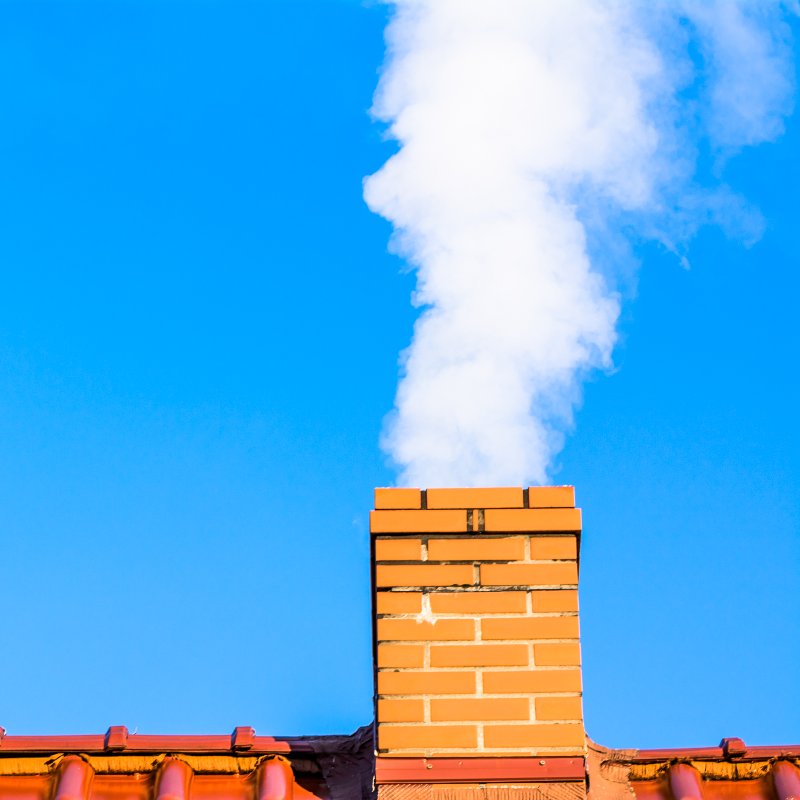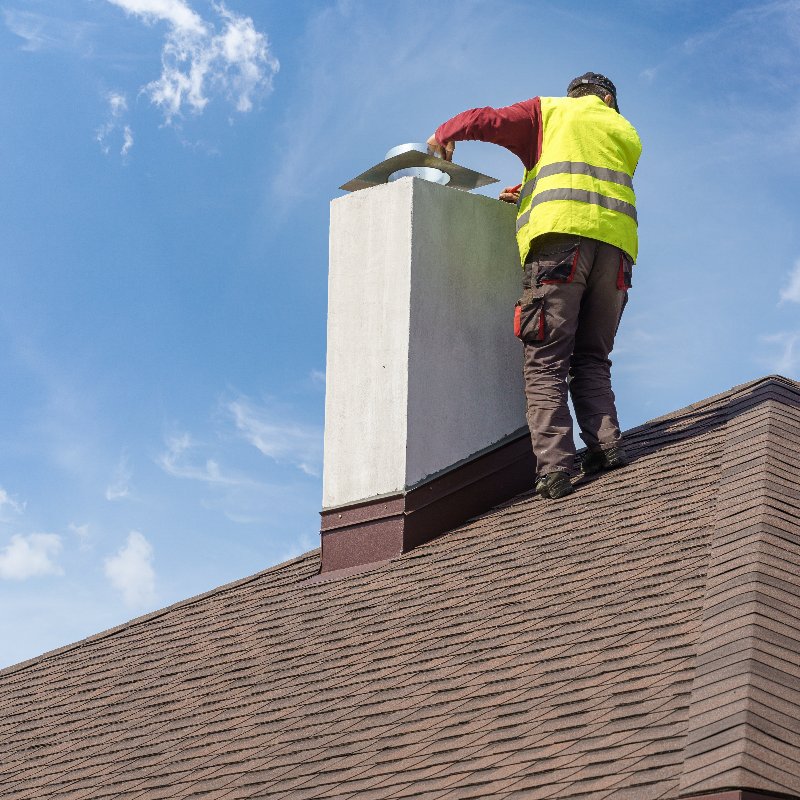
You’re sitting in the living room watching television when suddenly you hear a noise on the roof. “Who’s up on the rooftop, click-click, click …. “. Since this isn’t December 24th, you know it isn’t ol’ Saint Nick, so what was that noise? With a flashlight, you conduct a brief inspection and find bricks inside the fireplace and possible chimney water damage. And so, chimney repair has been added to your neverending to-do list.
Apparently, the chimney has been leaking for some time, maybe you’ve noticed it or not, it has been, and now chimney repairs are needed, the sooner the better. Why does my chimney leak when it rains? The chimney is extended outside and above the roof of your home. It is faced with constant exposure to the climates and elements, including heavy rain, high winds, snow, and sun exposure.
Here are some common areas that often require chimney repairs:
- THE CHIMNEY MUD CAP: Mortared around the top of the chimney, if it gets cracked or comes loose, the rain will get through and typically noticed in the fireplace hearth. Occasionally, the rain will take a different course and appear somewhere else in the house.
- CHIMNEY MORTAR JOINTS: Mortar joints deteriorate over time, leaving holes where water can enter. If the holes are large enough, or mortar is missing, blowing rain will allow more water to come through, and once that water has entered a hole, it travels to the bricks and zigzags its way past the flashing. It ends up leaking through the ceiling or lands on the slab.
- CHIMNEY FLASHING: Leaks around or under chimney flashing can be difficult to identify because even the smallest hole can create a lot of damage.
- ROOF SHINGLES: Roof shingles that are damaged, loose, missing, or word can be a source for a leaking chimney.
What causes chimney damage?
The chimney on your home may seem small and perhaps it is just architectural for you. However, if there is a fireplace connected to the chimney, it has an important role in the health and safety of your home. If you notice a leak, like water seeping through walls or entering the fireplace, the sooner you get chimney repairs made, the better.
Three areas common to chimney leaks are:
- Cracked or loose mortar
- Cracked or missing chimney flashing
- Damaged, loose, or missing roof shingles
How much does it cost to repair a leaking chimney?
After the leak source has been identified, chimney repairs can begin. The source of the chimney leak will determine the chimney repair cost, but they can start around $200 to $300 and go as high as $1000 or more.
How do you repair a chimney?
The two most common areas needing chimney repairs are the chimney cap and the flashing. The other areas that need repair should be done by a professional. Do roofers repair chimneys? They can do some repairs, especially if the problem is from poor installation of the chimney. A brick mason is another profession you can call, but your best source is a chimney sweep. They can do more types of chimney repairs than a roof or brick mason.
For the two areas that need chimney repair most often, we provide the following tips:
The chimney cap: As we mentioned earlier, these are exposed 24/7 to the climate, and they are the most vulnerable part of a chimney for cracking along the joints where the mortar shrinks.
To repair, you’ll need to chip out and scrape off the old deteriorating mortar, then brush it clean. Using a trowel, apply a new layer of ready-mix mortar, sloping it away from the flue to allow rain to drain properly. The mortar should be kept damp for 4 days so that it can cure.
The flashing: Using a wire brush, rough the area around the area and brush it clean. Cut a piece of the flashing larger than the damaged area and apply it with roofing cement. Cover the patched area with additional roofing cement. If the flashing is too corroded or damaged, replacing it is recommended using the same process.
Can you repair a chimney in the winter?
The best time of the year for chimney repairs is spring and summer, however, if your chimney is leaking in the winter, it should be repaired as soon as possible. Once winter is over, have the chimney inspected and the repaired area can be checked again.
When should a chimney be replaced?
A properly built chimney that has proper maintenance and upkeep can last for 100 years. Annual inspections are essential to the well-being of a chimney, as well as any needed or recommended chimney repairs.

Topping It Off: Is chimney repair covered under homeowner’s insurance?
Yes, if the chimney repairs are needed because of natural acts and unexpected incidents like fire, hail, high winds, or vandalism. If chimney repairs are needed because the chimney has aged, no, your homeowner’s insurance will not pay for repairs.
